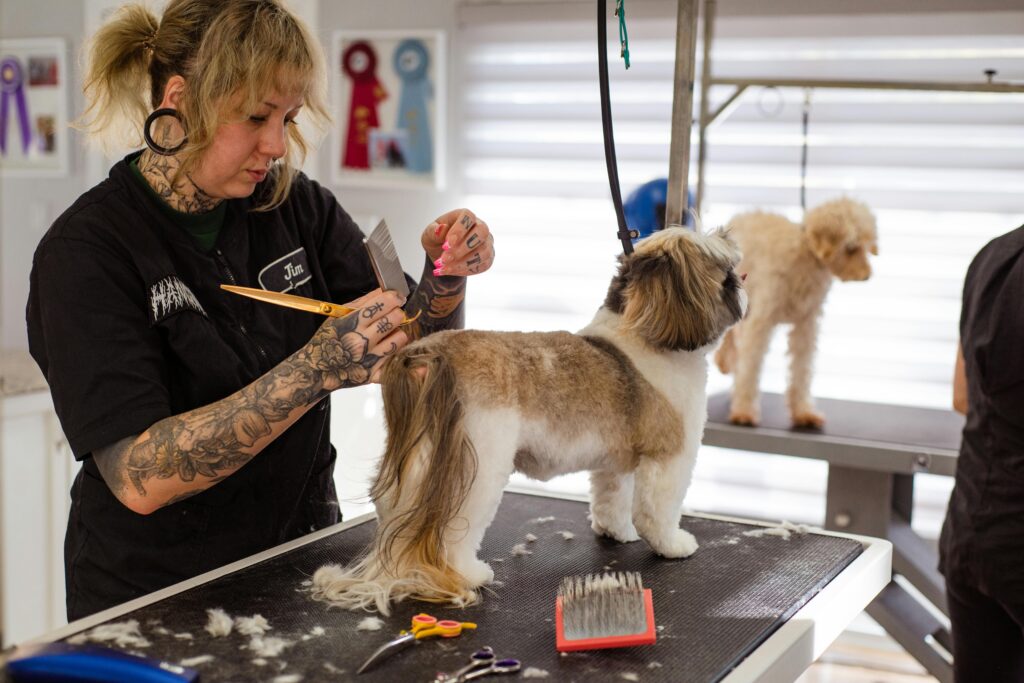Bringing a pet into your home is a big decision, and choosing the right breed is key to ensuring both you and your furry friend are happy. Different breeds have unique needs, temperaments, and energy levels, so finding one that fits your lifestyle will make for a smoother and more fulfilling relationship. Here’s what to consider when choosing the right pet breed for you.
Assess Your Living Space

One of the first things to consider is your home environment. If you live in an apartment or small space, you’ll want to opt for a breed that thrives in compact areas. Smaller dogs like French Bulldogs, Shih Tzus, or cats can adapt well to apartment living. They typically don’t need large yards and are happy with short walks or indoor play.
On the other hand, if you have a house with a yard, larger and more energetic breeds like Labradors, Golden Retrievers, or Australian Shepherds may be better suited. These dogs enjoy having outdoor space to burn off energy and explore.
Cats tend to adapt well to both small and large living spaces but consider whether they will be indoor-only cats or if you want to create a safe outdoor space like a “catio.”
Consider Your Activity Level
Your energy level and daily routine are major factors when choosing a pet. High-energy dogs, like Border Collies or Jack Russell Terriers, need plenty of exercise and mental stimulation. If you’re an active person who enjoys long walks, runs, or hikes, these breeds could be a great fit.
If you prefer a more relaxed lifestyle, lower-energy breeds such as Bulldogs, Basset Hounds, or older rescue dogs will be a better match. They’re content with shorter walks and lots of cuddle time on the couch. Cats are also perfect for those looking for a more independent pet, as they don’t require outdoor exercise but still need plenty of playtime and mental stimulation.
Think about how much time you have for exercise and play, and choose a breed that matches your level of physical activity.
Factor in Time Commitment
How much time you can dedicate to your pet on a daily basis is crucial in determining the right breed for you. Some dogs, like German Shepherds or Dalmatians, need constant interaction and thrive when they’re part of family activities. If you’re away from home for long hours, you’ll want a breed that can handle alone time better, such as Greyhounds, who are known to be couch potatoes.
Cats, in general, are more independent than dogs and can be left alone for longer periods, as long as they have food, water, and toys to keep them entertained. If you work long hours, a cat or an older, more laid-back dog might be a better choice.
Grooming Needs

Different breeds come with different grooming requirements. Some dogs, like Poodles or Shih Tzus, have coats that require regular grooming and trips to the groomer to prevent matting. If you’re not willing to commit to that level of maintenance, consider a short-haired breed like a Beagle or a Dalmatian.
Cats with long fur, like Maine Coons or Persians, will also need regular brushing to avoid matting, while short-haired breeds like American Shorthairs are much lower maintenance. Make sure to factor in grooming time and costs when choosing the right breed.
Consider Allergies
If you or someone in your household has allergies, you’ll want to choose a breed known to be hypoallergenic. While no dog or cat is completely hypoallergenic, some breeds, like Poodles, Bichon Frises, and Sphynx cats, produce fewer allergens and might be a better fit for those with sensitivities.
Keep in mind that even hypoallergenic breeds still require regular grooming and cleaning to minimize allergens in your home.
Family and Other Pets

If you have kids or other pets, it’s important to choose a breed with a temperament that will fit in well with your household. Breeds like Golden Retrievers, Labradors, and Beagles are known for being friendly and patient with children. On the other hand, breeds with a more independent or protective nature, like Chihuahuas or Akitas, may not be the best fit for families with young kids.
If you already have a cat and want to add a dog to the family (or vice versa), look for breeds that are known to get along well with other animals. Slow, supervised introductions are key to maintaining peace in a multi-pet household.
Health and Lifespan
Lastly, research the common health issues and life expectancy of the breed you’re considering. Some breeds, like Bulldogs or Pugs, are prone to specific health issues, such as breathing problems or joint issues. Knowing the potential health risks and how much you’re willing to invest in your pet’s health care over the years is an important factor in making your decision.
Additionally, different breeds have varying lifespans. Smaller dogs and cats tend to live longer, while larger breeds may have shorter lifespans. Consider this when thinking about your long-term commitment.
Choosing the right pet breed for your lifestyle involves more than just picking the cutest one. By assessing your home, activity level, time commitment, and other factors, you can find a breed that will fit seamlessly into your life and bring you years of joy and companionship.


